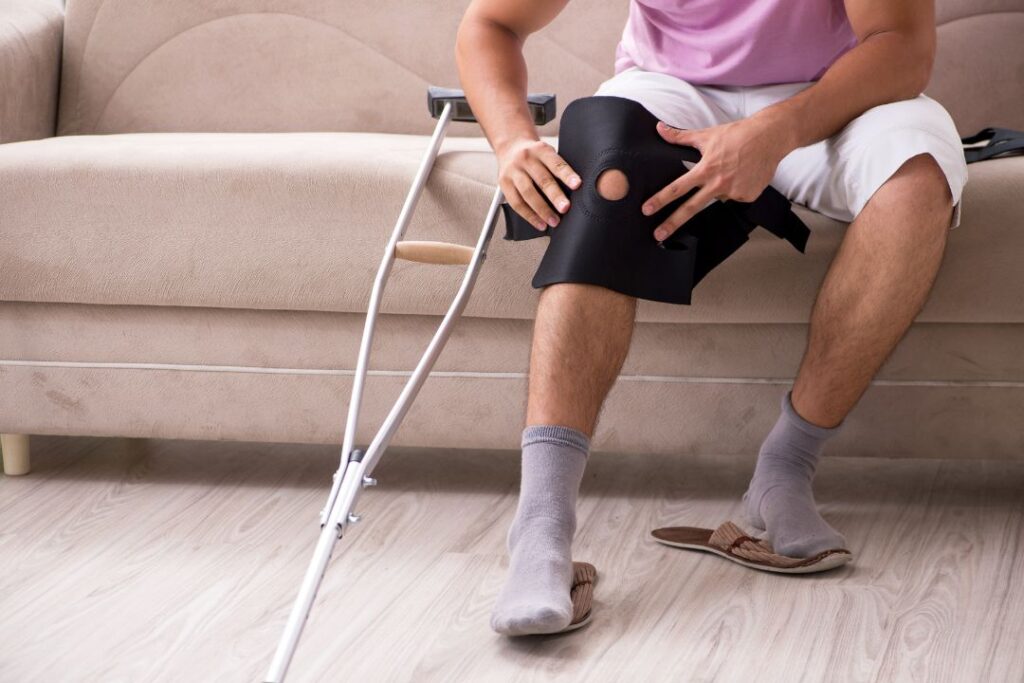Experiencing an injury on someone else’s property, especially at a friend’s home or neighbor’s yard, can be a highly sensitive and stressful event. It introduces difficult questions, including the potential awkwardness of filing a claim against someone close to you and uncertainty about your legal rights. Misconceptions often arise regarding personal responsibility and the role of homeowners’ insurance. Whether you’re injured while attending a social gathering, visiting neighbors, or simply spending time at a friend’s house, understanding your legal options and the steps to protect yourself is crucial. Similarly, homeowners often worry about liability if someone else gets hurt on their property, particularly if that person is a neighbor’s child. This blog will demystify premises liability law, address common scenarios such as injuries at a friend’s or neighbor’s property, discuss how homeowners’ insurance typically responds, and guide you through determining when legal action might be necessary. The information presented here will empower you to make informed decisions and navigate these sensitive situations confidently and effectively.
Understanding Premises Liability
Premises liability refers to the legal obligation property owners have to maintain their property in a reasonably safe condition. This responsibility is intended to protect anyone who enters the property, including invited guests, neighbors, and even occasional visitors. Property owners must actively prevent hazards, perform regular property maintenance, repair dangerous conditions promptly, and provide adequate warnings about potential dangers that cannot immediately be fixed. Neglecting these responsibilities can lead to serious consequences, including legal liability.
Typical examples of injuries under premises liability include slip-and-fall accidents due to wet or icy surfaces, trips caused by uneven flooring, injuries from unsecured structures or falling objects, dog bites, and swimming pool accidents. These injuries can range from minor sprains to severe conditions requiring extensive medical treatment.
To successfully pursue a premises liability claim, an injured party must demonstrate that the property owner either knew or reasonably should have known about the hazardous condition and failed to correct it or adequately warn visitors. The injured party must also prove a direct connection between the hazardous condition and the injuries sustained. Understanding these nuances can significantly aid in determining the strength and validity of your claim.
Injured at a Friend’s House: What Are Your Options?
Injuries sustained at a friend’s or neighbor’s home can result in emotional stress and uncertainty about the appropriate steps to take. Immediately following an accident, seeking medical attention should always be your priority to ensure your health and well-being. Afterward, thoroughly document the circumstances: photograph the location and hazard that caused your injury, gather contact information and statements from witnesses, and retain all relevant medical records.

Determining liability involves examining whether your friend or neighbor was negligent in maintaining their property. Negligence might include failing to fix known hazards such as loose steps, unmarked wet floors, or inadequate lighting. Importantly, in most cases, compensation for injuries sustained at someone else’s home does not come directly from their personal funds. Instead, homeowners’ insurance usually handles these claims. Understanding this can ease the emotional burden of pursuing compensation from someone you know.
Consulting an experienced personal injury attorney early can help manage this delicate situation sensitively and professionally. Attorneys are skilled at negotiating with insurance companies, ensuring your rights and interests are protected without unnecessarily straining personal relationships. Your focus can remain on recovery and maintaining friendships, while your legal representative manages the complexities of the claim.
If Someone Gets Hurt on Your Property, Can They Sue You?
Yes, individuals who suffer injuries on your property due to unsafe conditions can file a lawsuit against you. For such a claim to be successful, the injured party must demonstrate that your negligence directly contributed to their injury. Negligence may involve failing to address known dangers, not providing adequate warnings about existing hazards, or neglecting routine property maintenance.
Courts evaluate premises liability claims based on several key factors: the foreseeability of the injury, the property owner’s actual or constructive knowledge of the hazard, and the reasonableness of steps taken to address the risk. Visitors’ status can also impact liability; homeowners generally have a higher duty of care toward invited guests than toward trespassers. However, certain responsibilities still exist, even towards uninvited visitors.
Implementing proactive measures such as regular property inspections, promptly addressing known hazards, clearly marking dangerous areas, and maintaining comprehensive liability insurance coverage are essential steps homeowners can take to mitigate risks. Being proactive can significantly reduce the likelihood of legal action and protect homeowners from financial liability resulting from injuries on their property.
Neighbor Child Hurt on My Property—Am I Liable?
The injury of a neighbor’s child on your property can be especially concerning because liability can be more stringent in cases involving children. Legally, children receive additional protection under premises liability laws due to their inherent vulnerability and lack of judgment in recognizing hazards. Specifically, the concept of attractive nuisances comes into play. Attractive nuisances are conditions or objects that naturally attract children and pose potential hazards, including swimming pools, trampolines, playground equipment, or even piles of construction materials.

Homeowners must proactively anticipate such hazards and take reasonable steps to prevent children from accessing them or to warn clearly about these dangers. For instance, securely fencing pools or trampolines, ensuring gates are locked, and providing adequate supervision are considered standard protective measures.
If an injury does occur, homeowners’ insurance typically covers liability claims involving children. However, homeowners should confirm their coverage is comprehensive enough to handle such situations. Regular property inspections, proactive hazard mitigation, and maintaining clear communication with neighbors about potential hazards are effective strategies to reduce liability risks significantly.
How Homeowners Insurance Plays a Role
Homeowners insurance plays a critical role when someone is injured on your property. Typically, your homeowners insurance policy includes liability coverage designed to protect you financially if someone is hurt on your property due to negligence or unsafe conditions. When an injury occurs, the injured party usually files a claim directly with your insurance provider, and the insurance company will investigate the incident to determine liability.
However, issues may arise if your insurance company denies the claim or if your coverage is insufficient to fully address the costs related to the injury. Claims can be denied for various reasons, including policy exclusions, lack of timely notification, or the insurer’s determination that you were not negligent. In such situations, homeowners may face the risk of personal financial exposure.
To navigate homeowners insurance effectively, promptly notify your insurer of any incidents, cooperate fully during their investigation, and document the situation thoroughly. Keep clear records, including correspondence with insurance adjusters. If you encounter resistance or difficulties, consulting an attorney can help you negotiate more effectively with insurance representatives, protecting your interests and financial stability.
Why Consulting a Personal Injury Attorney Matters
When dealing with premises liability claims, consulting an experienced personal injury attorney can significantly influence the outcome. Attorneys provide essential guidance, helping both injured parties and homeowners understand their legal rights, responsibilities, and options. For injury victims, an attorney ensures their claim is valued correctly, negotiates assertively with insurance companies, and if necessary, represents their interests in court.
For homeowners, attorneys offer valuable advice on minimizing liability risks, handling insurance claim disputes, and ensuring adequate coverage. Attorneys navigate complex legal processes, provide clarity on legal obligations, and help clients achieve fair outcomes without unnecessary stress.
Attorney Shannon Soignier offers a distinctive advantage, combining legal expertise with professional medical experience as a Registered Nurse (RN). Her unique qualifications allow her to assess medical evidence accurately, communicate effectively with healthcare providers, and advocate powerfully for clients’ medical and financial interests.
Steps to Take Immediately Following an Injury on Someone Else’s Property
If you experience an injury on someone else’s property, taking immediate and appropriate steps can significantly impact your ability to recover physically and financially. First, seek prompt medical attention, even if your injuries seem minor initially. Early medical evaluation can identify hidden injuries and document the link between the accident and your injuries.
Next, document the incident thoroughly. Take photographs or videos of the location, clearly showing the conditions that contributed to your injury. Collect the names and contact information of any witnesses present. Promptly notify the property owner about the accident, but avoid discussing fault or liability extensively without legal advice.
Maintain organized records of all medical treatments, expenses, and any communications related to your injury. Consider speaking with a personal injury attorney early to understand your rights, ensure proper documentation, and receive guidance on dealing with insurance representatives.
Common Misconceptions about Homeowners’ Liability
Misconceptions about homeowners’ liability can lead to confusion and mistakes following property-related injuries. One common misconception is that homeowners are automatically liable for all injuries on their property. In reality, homeowners must be shown to have acted negligently or failed to address foreseeable hazards.
Another misunderstanding is that homeowners must personally pay claims out-of-pocket. Usually, homeowners’ insurance coverage handles injury-related expenses, protecting homeowners from direct financial exposure.
Some believe posting a disclaimer or warning sign entirely eliminates liability. While clear warnings can help, they do not completely absolve property owners from responsibility, especially if they fail to fix or adequately warn about known hazards.
Finally, many think inviting guests into their homes or property carries minimal risk. However, homeowners owe visitors a duty of care and should maintain safe conditions to minimize liability risks.
Frequently Asked Questions about Premises Liability Claims
What exactly is premises liability?
Premises liability refers to the legal responsibility property owners have to maintain safe conditions and prevent injury to visitors on their property.
Who pays compensation in a premises liability claim?
Typically, the homeowner’s insurance policy covers the compensation paid to injured parties.
Can someone sue me even if they were trespassing?
Generally, liability is lower for trespassers, but property owners may still be liable if they intentionally create hazardous conditions or fail to secure attractive nuisances.
How long do I have to file a premises liability claim?
Time limits vary by state; in Colorado, the typical statute of limitations for filing a premises liability claim is two years from the date of injury.
Do I need a lawyer to handle my claim?
While not legally required, consulting a personal injury lawyer greatly increases your chances of receiving fair compensation and effectively navigating the claims process.
Conclusion
Understanding your rights and responsibilities regarding premises liability and homeowners insurance is essential for effectively managing injuries on residential properties. Whether you’re facing the delicate situation of an injury at a friend’s house or concerned about liability on your own property, clear and informed decisions can make a significant difference.
If you’re involved in a premises liability situation, take immediate action by consulting a qualified attorney who can guide you through the complexities of the law, insurance negotiations, and potential legal proceedings. Shannon Soignier – Personal Injury Lawyer provides compassionate, knowledgeable, and medically-informed legal representation. Contact us today to schedule a consultation and ensure your rights and interests are comprehensively protected.




0 Comments